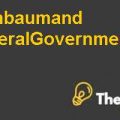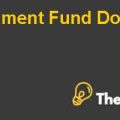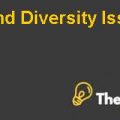
INTRODUCTION
Ghana is a country with a population of more than 25 million people, and a land area of 239,000 km2. Ghana is West Africa’s second largest economy country after Nigeria and Africa’s twelfth largest. Ghana emerged as one of the Africa’s most peaceful, stable, and democratic country. One of the important influences on the performance of the Ghana’s economy in the last two decades has led the country to increase economies of scale. However, Ghana is projected to be one of the world’s fastest growing economies in 20 years.
Economic reforms considerably focused on openness to economies and external free trade. In addition, globalization has been a major aspect of the society and economy. However,this influence has been observed in terms of capital flows, technology transfer, aid, international migration and foreign direct investment. Nonetheless, Globalization of the world’s economy and differences between various countries have ledthe companies to face numerous issues such as high competition, economic and political differences, cultural differences, unethical practices, and inflexible working conditions. Moreover, globalization brings benefits and opportunities as well as risks and cost.
After facing the economic crisis, the government of Ghana initiated a long-term development goal to increase the per capita income of the country. Moreover, Ghana’s long-term growth is largely attributed to its abundant natural resources and minerals, such as oil and cocoa. Furthermore, Ghana is encouraging foreign investment and capital flows, which helps the country to maximize its GDP growth rate and per capita income. However, Ghana is still facing multiple challenges and issues, which need to be resolved, in order to prosper the long-term growth of the country.
PROBLEM STATEMENT
According to the case, Tony Clyde, a loan assessment officer at the Export Development Center, analyzed the proposed project that involved the export of various refurbished machines, which are used in the forestry industry. Moreover, the machines comprise of various models that are not being initially manufactured in Canada. Furthermore, Tony Clyde was satisfied that the value added complied with the Canadian benefits criterion, which led the company to maximize its profits.
However, the main problem arises with the sales of used equipment that created dissatisfaction as well as a decrease in revenue. Moreover, Clyde was aware of the risk that was associated with the refurbished equipment because the used equipment may not develop an innovative product, which could satisfy the customers’ needs and demand in the long run. Furthermore, Mensah, a forestry company based in Ghana, decided to buy used equipment from Oakridge and advised Clyde to provide equipment as collateral for the loan.
However, Clyde was unsure about accepting collateral in Ghana because of economic conditions and the lack of infrastructure in the country. Moreover, Clyde suspects that the legal costs for collateral would be higher than the proposed loan. Furthermore, this situation leads Clyde in a dilemma whether Export Development Corporation should extend financial loans to foreign companies that are considering buying from the Canadian supplier. The issues include the global business risks and also a role of export development agency in assisting a country’s export.
Apart from that, the other issues of Ghana include weak capacities, skill shortages, managing economic policy in global economies, and productivity constraints. Moreover, the challenges include obstructive bureaucracy, erratic power supply, corruption, high unemployment, and high poverty rate.
This case is about globalization and strategy therefore, it is important to conduct an in-depth analysis by using SWOT analysis and PESTLE analysis. The analysis will help to drive possible alternatives and best solutions, in orderto come up with recommendations and conclusions.
CASE ANALYSIS
SWOT analysis
Strength
One of the major strengths of Ghana is its abundant natural resources such as oil and cocoa, which help the company to increase its GDP growth rate and also to provide employment opportunity for the people of Ghana. Moreover, Ghana has a stable and peaceful geopolitical environment as compared to neighboring countries as well as other countries around the world. Furthermore, the strengths of Ghana include changing government policies towards progress, encouraging foreign direct investment, competitive labor costs, the large pool of good English speaking population and investor-friendly policies.
Weaknesses
Ghana consists of various weaknesses, which include political conditions, lack of infrastructure, inadequate educational facilities, high unemployment rate, lack of skilled labors and human capital. Moreover, the weaknesses include lack of modern technology, ineffective working conditions, low level of IT literacy and PC proliferation, discrimination issues among gender and minorities, high inflation and interest rates, low per capita income and environmental issues..................................
This is just a sample partial case solution. Please place the order on the website to order your own originally done case solution.














